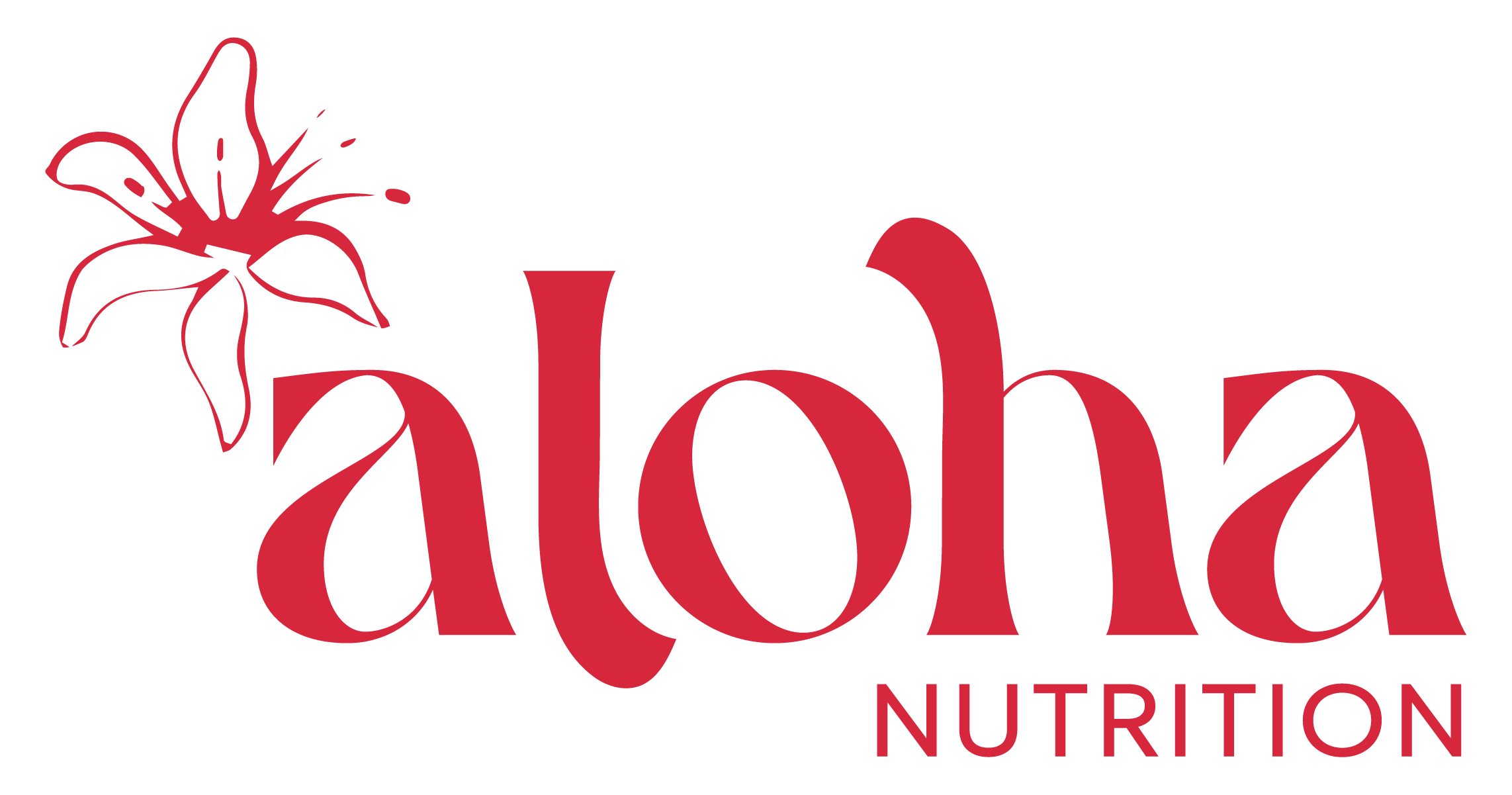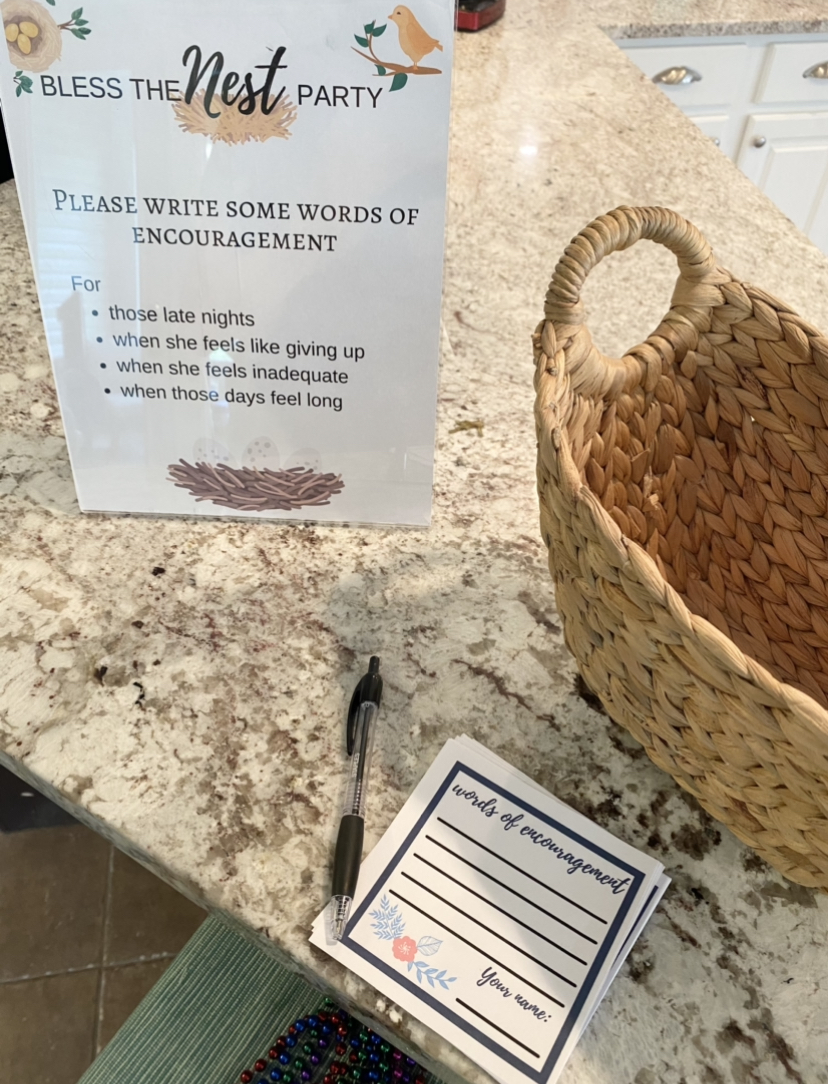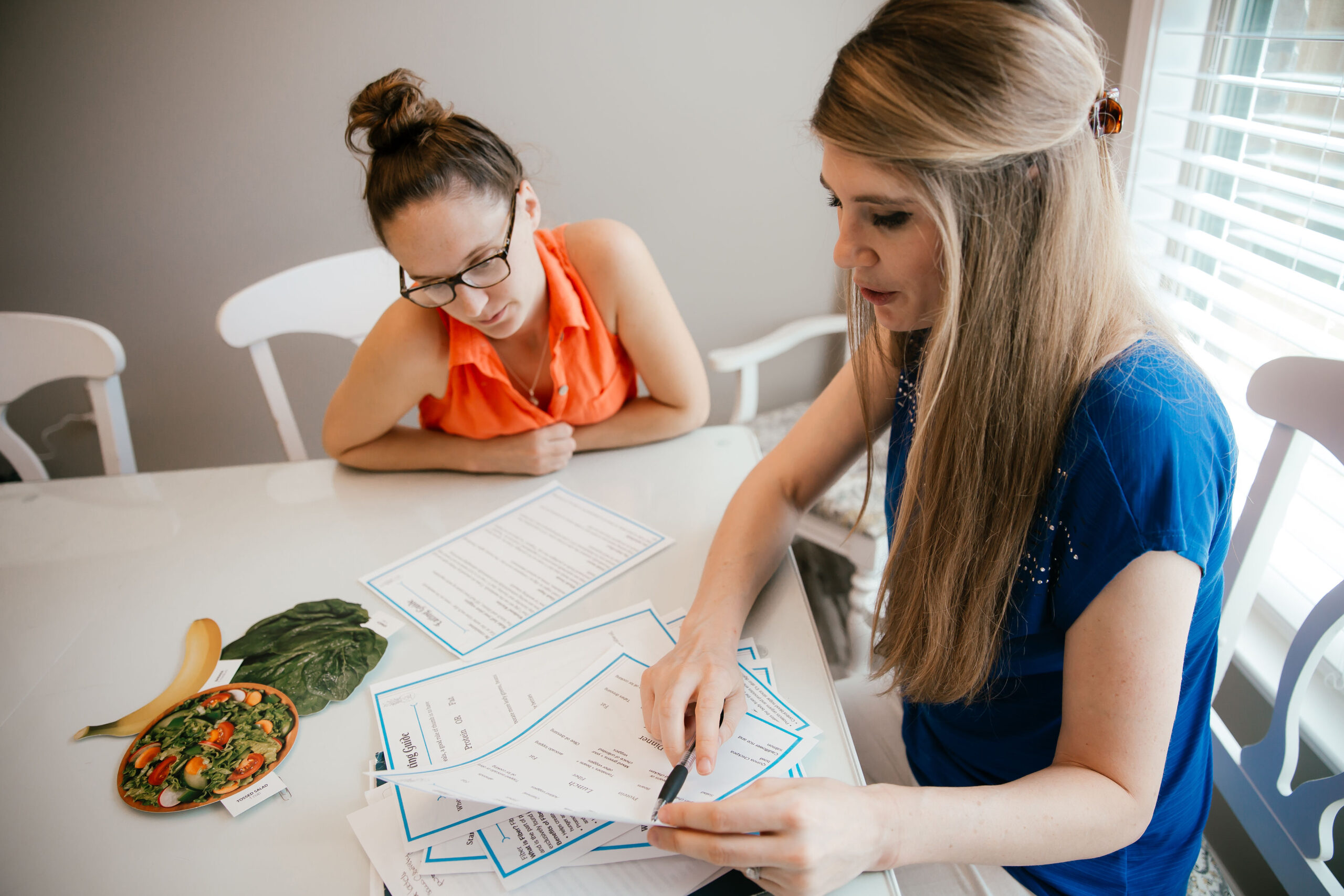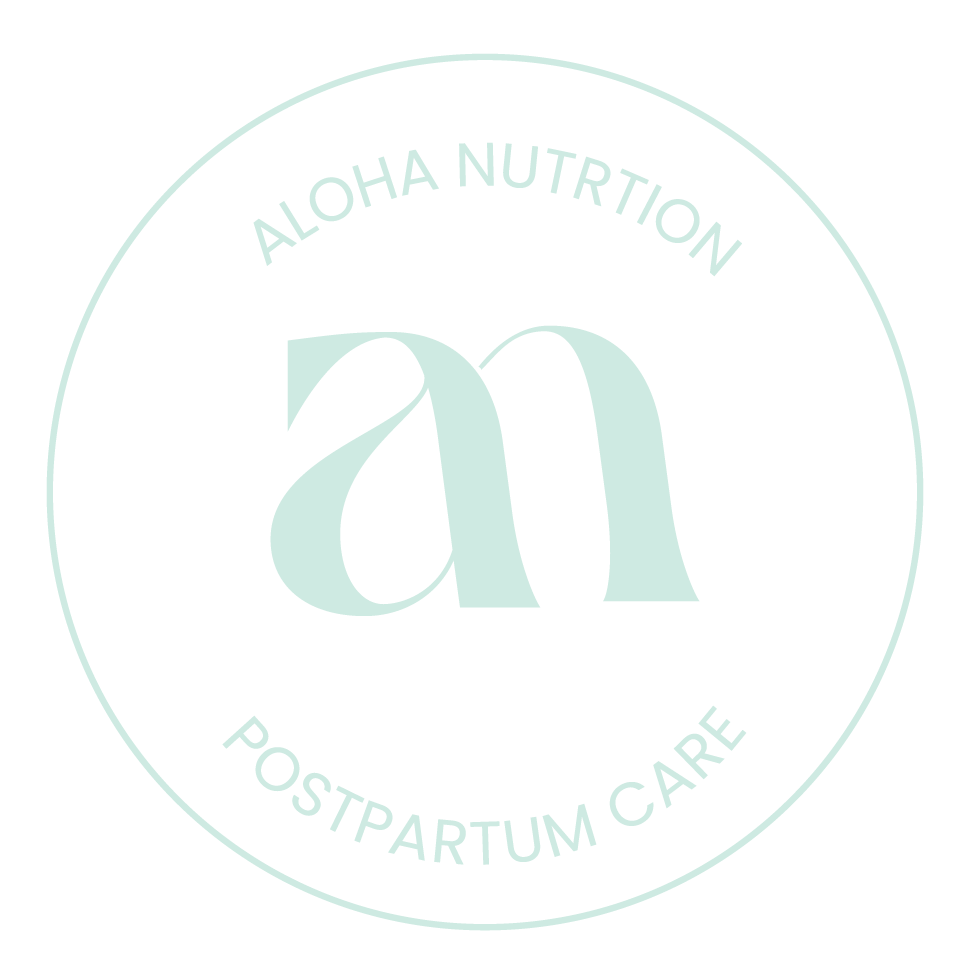It’s no longer just you and your body. During pregnancy, you share the same bloodstream as your baby! What you eat has a direct impact on your baby. Pregnancy is also NOT a time to diet or worry about weight loss. Pregnancy is a time to nourish your body and provide the best care possible. It’s a time to really strive to eat healthily.
There was a study done of mothers that ate very poorly during pregnancy and they detected 287 chemicals in the umbilical cord, 180 of them could cause cancer, and 217 of the chemicals were toxic to the brain and nervous system! If you’re ever going to worry about what you eat, pregnancy is the one time you really want to pay attention to what you are and aren’t eating.
My intern Makenna O’Brien has been doing a series on how to have a healthy pregnancy and will continue with her third post focusing on diet and nutrition. You can read the first post on How to have a healthy pregnancy and the second post about Exercising during Pregnancy.
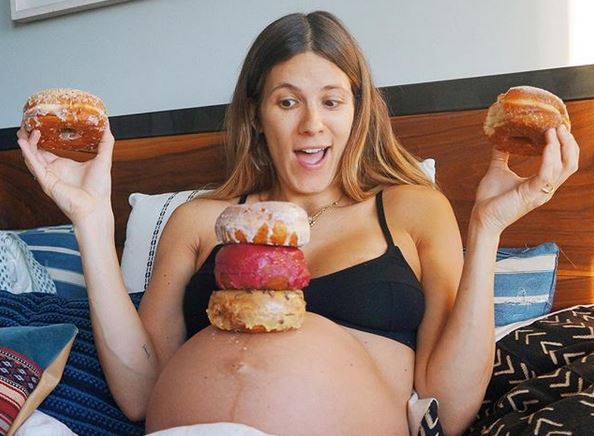
Why is it important to eat well during pregnancy?
It is important that you eat a healthy and balanced diet throughout your pregnancy, because this will benefit your health as well as your growing baby’s health. You give nourishment to your baby through the food you choose to eat, so it is important that the food you eat is full of nutrients. While it’s important to eat a variety of nutrients during pregnancy, it’s especially important to ensure you’re eating foods rich in:
Protein
Protein is crucial for development of fetal tissue, breast and uterine tissue growth. It helps your baby’s muscles function properly, helps to make antibodies, hormones and enzymes. According to the Institute of Medicine, pregnant women should aim for at least 71 grams of protein per day. Found in: beans, nuts, variety of vegetables, tofu, quinoa, chia seeds, fish and lean meats.
Iron
During pregnancy your blood volume increases by 50% so iron is necessary to supply oxygen throughout your body and to your baby. Iron helps move oxygen from your lungs to your baby and the rest of your body. The RDA for iron is 27mg/day.
Found in: Beans, dark leafy greens, eggs, lean meats, and iron-fortified foods. Plant based food sources are better absorbed by incorporating foods with vitamin C, like tomatoes, citrus fruits, bell peppers, strawberries etc.
Calcium
Since you’re creating a human skeleton, you’ll want to ensure you’re getting adequate calcium. Current recommendations suggest 1200mg/day. Calcium helps build your baby’s bones and teeth and regulates your body’s use of fluids. Calcium also helps the growth of a healthy heart with normal heart rhythms and blood clotting abilities, nerves and muscles. Found in: dark leafy greens, tofu, sardines/salmon, almond milk, soy milk, fortified orange juice.
Vitamin D
Vitamin D work in conjunction with calcium. It helps your body absorb calcium to help build your baby’s bones and teeth. Vitamin D may also reduce the risk of complications such as preterm birth and infection. Found in: egg yolks, fortified milk, mushrooms, and sunlight
Folate
Folate helps the embryonic neural tube to close properly during the first few weeks of pregnancy. To reduce the risk of neural tube defects, you need 600 to 800 mcg of folate. Found in: Dark leafy green vegetables, nuts, dried beans and lentils.
(*There is a difference between folate and folic acid. Folic acid is the synthetic form of folate. Folate is found in nature)
B-vitamins
B vitamins – B1, B2, B3, B5, B6, B7, B9, and B12 – all serve as either a coenzyme for metabolic processes or is a precursor needed to make an enzyme. Since you’re creating a new human, these are all vital nutrients. Found in all fruits, vegetables, whole grains, and animal products.
B12 is involved with DNA synthesis and cell metabolism; it is found in animal products or fortified foods. Vegans are at risk for deficiency, so careful meal planning is important.
DHA
Helps build your baby’s brain, nervous system and eyes. Found in: Fish oil, fish, algae, and prenatal vitamins
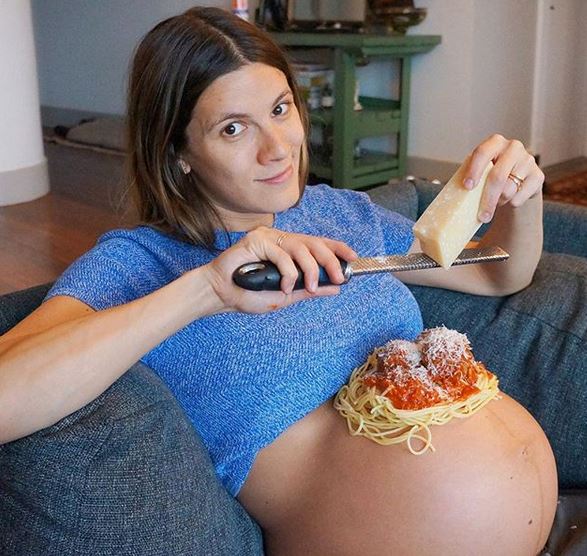
What about prenatal vitamins?
Prenatal vitamins are an important supplement to your diet. They are there to fill in any nutritional gaps in your diet, not to replace healthy foods. Even if you feel you have a healthy diet, many women are deficient in at least one vitamin or mineral without realizing it. Prenatal vitamins include but are not limited to – folic acid, calcium, vitamins D, B vitamins, zinc, iron and iodine. If possible, you also want to make sure your prenatal vitamin has DHA. DHA is an omega-3 fatty acid found in fish oil or algae; it helps build your baby’s brain, eyes and nervous system. When choosing a prenatal vitamin be sure to look at the label and make sure you will be getting enough of each nutrient.
Building your plate
In 2011, the USDA replaced the pyramid with a plate to give the population a visual on what your plate should look like. The USDA updated their website – choosemyplate.gov to provide nutrition information and support to the general population. This includes pregnant women! The site is a great source to see how much of each food group you should be eating. The MyPlate site also discusses carrying more than one baby, which would require a higher caloric need than women who are carrying just one baby.
MyPlate focuses on eating a variety of different foods, such as fruits, grains, vegetables, and protein. Your plate may look similar to theirs, but if not start with small changes to build a healthier plate. Adding fruits and vegetables of different colors to your meals brighten up your plate as well as gives you a variety of nutrients.
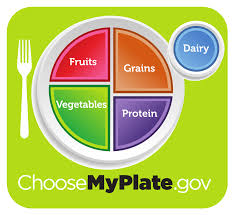
What NOT to eat
Now that you know what you should eat, you may be wondering what you shouldn’t eat.
- Alcohol
- Undercooked meats and cold cuts due to the risk of foodborne illnesses, which does affect your baby
- Fish with high mercury, such as swordfish, marlin, ahi tuna, king mackerel
- Raw eggs
- Soft cheeses such as brie, feta, gorgonzola. However if the label clearly states, “pasteurized” then it’s okay
- Unwashed fruits and vegetables
Some of these foods may be hard to avoid, but remember this isn’t forever, 9 months will go by very fast. Try to do your best. The good news is once you’ve delivered, you can go back to eating the foods you love. What you eat when you breastfeed, doesn’t affect breastfeeding since you’re no longer sharing the same bloodstream. More on that in a future blog post…
It can be hard to get that perfect meal, especially with the morning sickness, fatigue, and just balancing your daily tasks, but even if it’s not perfect, do your best and make your baby an excuse. Even small changes in your diet can make a big difference on the health of your baby. If you need some motivation when vegetables don’t look as appetizing, just imagine that your baby eats what you are eating and you want them to get all the nutrients they need. You got this!
If you need help figuring out what to eat, what your current nutrient analysis is, what nutrients you’re lacking, please reach out.
To schedule your initial consult and receive 10% off for reading this blog post, use the promo code “alohablog” when you check out for your initial consult
PC: @edeneats
